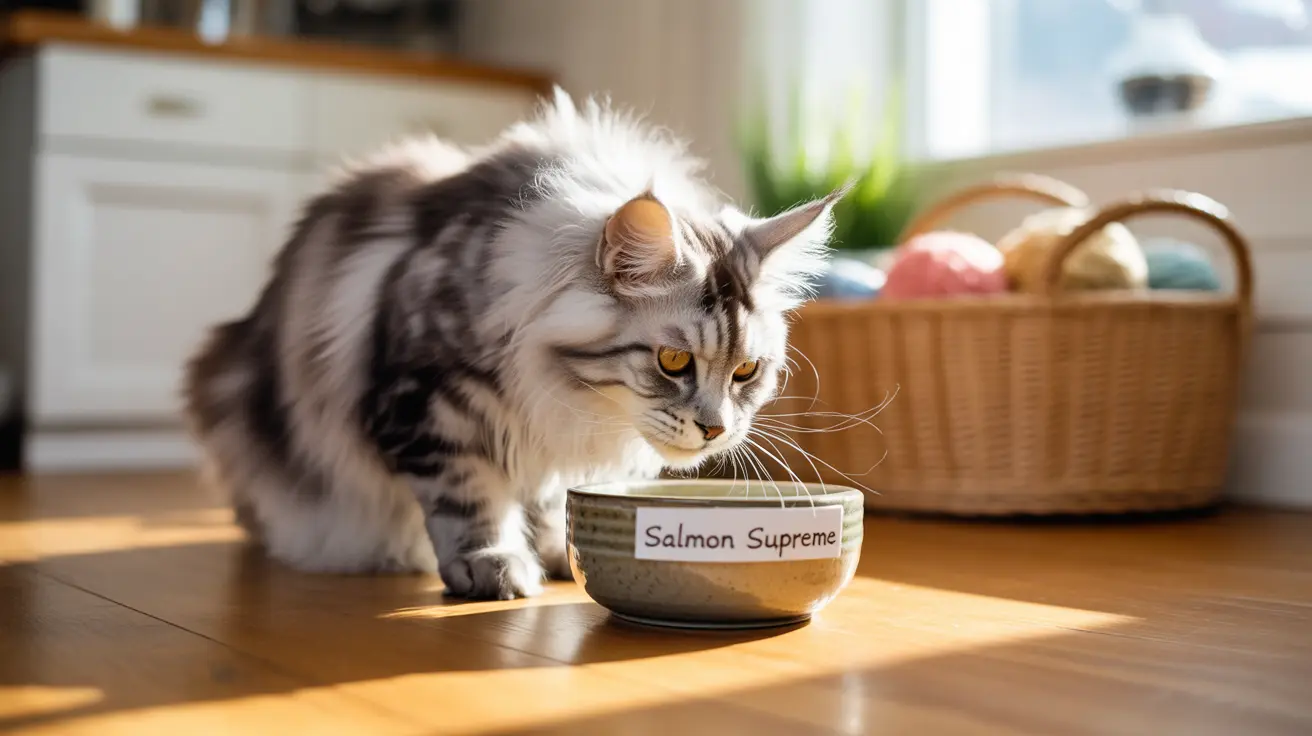Has your feline friend suddenly become finicky about their food? When a cat suddenly becomes a picky eater, it can leave pet parents worried and frustrated. This unexpected change in eating habits isn't just annoying – it could signal anything from simple preferences to more serious health concerns that require attention.
Understanding why your cat has become selective about their food is crucial for addressing the issue effectively. Let's explore the various causes and solutions for sudden picky eating in cats, helping you ensure your pet maintains proper nutrition and health.
Common Reasons for Sudden Picky Eating
Changes in Food and Environment
Cats are creatures of habit, and even minor changes can affect their eating patterns. Something as simple as a slight formula adjustment in their regular food brand can trigger selective eating. Many cats also become particular about food temperature, preferring their meals slightly warmed to room temperature rather than straight from the refrigerator.
Environmental factors play a significant role too. Moving food bowls to new locations, introducing new pets, or changing feeding schedules can all contribute to sudden pickiness. Even subtle changes in household routine can impact your cat's willingness to eat.
Medical Issues That Affect Appetite
When a cat suddenly becomes a picky eater, health concerns should be considered. Dental problems, including gingivitis or tooth decay, can make eating painful. Gastrointestinal issues, kidney disease, and upper respiratory infections commonly affect appetite and can lead to food aversion.
Statistics show that dental disease affects up to 85% of cats over three years old, making it a leading cause of sudden food selectivity. If your cat's pickiness persists for more than 48 hours, a veterinary check-up is essential to rule out these medical conditions.
Solutions for Picky Eating
Practical Feeding Tips
To combat sudden pickiness, try these proven strategies:
- Warm wet food slightly to enhance aroma and appeal
- Maintain consistent feeding times and locations
- Use clean, shallow food bowls to prevent whisker fatigue
- Store dry food in airtight containers to preserve freshness
- Offer food in a quiet, stress-free environment
Creating the Right Environment
Establishing an ideal feeding environment can help resolve sudden picky eating. Place food bowls away from litter boxes and high-traffic areas. In multi-cat households, provide separate feeding stations to reduce competition and stress.
Prevention Strategies
Preventing future episodes of picky eating starts with understanding your cat's preferences and maintaining consistency. Gradually introduce any new foods over 7-10 days by mixing them with current food in increasing amounts. Regular veterinary check-ups can help catch potential health issues before they affect eating habits.
When to Seek Veterinary Help
While some pickiness is normal, certain signs warrant immediate veterinary attention:
- Complete food refusal for more than 24 hours
- Significant weight loss
- Lethargy or behavior changes
- Vomiting or diarrhea accompanying food selectivity
- Excessive drooling or difficulty eating
Frequently Asked Questions
Why is my cat suddenly a picky eater even though nothing in their food changed?
Even when food hasn't changed, cats may become picky due to stress, environmental changes, or underlying health issues. Changes in routine, new household members, or even slight variations in food freshness can affect eating habits.
Could my cat's sudden picky eating be a sign of a health problem like dental pain or kidney disease?
Yes, sudden picky eating can indicate various health issues, including dental problems, kidney disease, gastrointestinal upset, or other medical conditions. If pickiness persists beyond 48 hours, consult your veterinarian.
How can I help my cat eat if they've developed a food aversion after being sick or hospitalized?
Try offering highly aromatic foods, warming meals slightly, and feeding in a calm environment. Sometimes switching to a novel protein or different texture can help overcome food aversions. Consult your vet for specific recommendations based on your cat's condition.
What environmental changes might cause my cat to become suddenly selective about their food?
Changes in feeding location, new pets, household guests, moving homes, or alterations in daily routine can cause food selectivity. Cats are sensitive to their environment and may express stress through changed eating habits.
How should I transition my cat to a new food to prevent sudden pickiness or refusal?
Gradually mix the new food with the current food over 7-10 days, slowly increasing the proportion of new food while decreasing the old. Start with 25% new food and 75% old food, adjusting the ratio every few days until reaching 100% new food.






